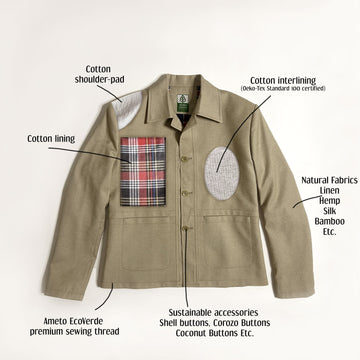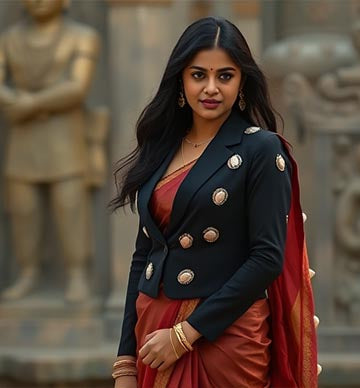
Materials we use
Responsibly Sourced Fabrics
At Adam Leaves, our aim is to always use the lowest impact fabrics possible for our designs, prioritising organic, recycled and deadstock materials, whilst continually exploring new sustainability solutions and innovations.
Our Materials
Organic Cotton
Organic cotton fabric is produced without synthetic pesticides, fertilizers, or GMOs, maintaining soil fertility and conserving biodiversity. It uses less water than conventional cotton and is soft, breathable, and hypoallergenic. Certified by standards like GOTS, organic cotton protects farmers and ecosystems.
Silk
Silk is a luxurious natural fiber produced by silkworms from pesticide-free mulberry trees. It is soft, strong, lustrous, and biodegradable. The low-impact production process respects the environment and promotes biodiversity, making silk an elegant and eco-friendly fashion choice.
Linen
Linen fabric is a lightweight, breathable material made from the fibers of the flax plant, which is both renewable and requires minimal water, pesticides, and fertilizers. Known for its durability and natural texture, linen is highly absorbent, moisture-wicking, and biodegradable, making it an environmentally friendly choice.
Hemp
Hemp fabric is a durable textile made from hemp plant fibers, known for its rapid growth and minimal water needs. It requires no pesticides and improves soil health. Hemp is strong, breathable, mold-resistant, and biodegradable, supporting sustainable farming practices and promoting biodiversity.

Embroidery

Shells
Organic cotton fabric is produced without synthetic pesticides, fertilizers, or GMOs, maintaining soil fertility and conserving biodiversity. It uses less water than conventional cotton and is soft, breathable, and hypoallergenic. Certified by standards like GOTS, organic cotton protects farmers and ecosystems.

Natural Threads
Silk is a luxurious natural fiber produced by silkworms from pesticide-free mulberry trees. It is soft, strong, lustrous, and biodegradable. The low-impact production process respects the environment and promotes biodiversity, making silk an elegant and eco-friendly fashion choice.
Materials we chose not to use
Sequins
Sequins are a disaster for the environment. Most are made from petroleum plastics that are damaging to our natural ecosystems, and their shimmer is obtained through chemical or metallic coatings. These are not biodegradable and are also drawn from raw material sources that are limited. We will not use sequins in our designs until a satisfactory alternative is available.
Leather
Animal welfare is a key concern when sourcing animal-based materials such as leather and wool, and the traceability issues linked to the industry can make difficult to identify animal welfare breaches in supply chains. We therefore have established an animal welfare policy that you can read here. We do, however, prioritise the use of biodegradable natural fibres as we strive to select materials with the lowest possible lifecycle environmental impact, and as such are in support of using wool in our collections where strict requirements are met.
